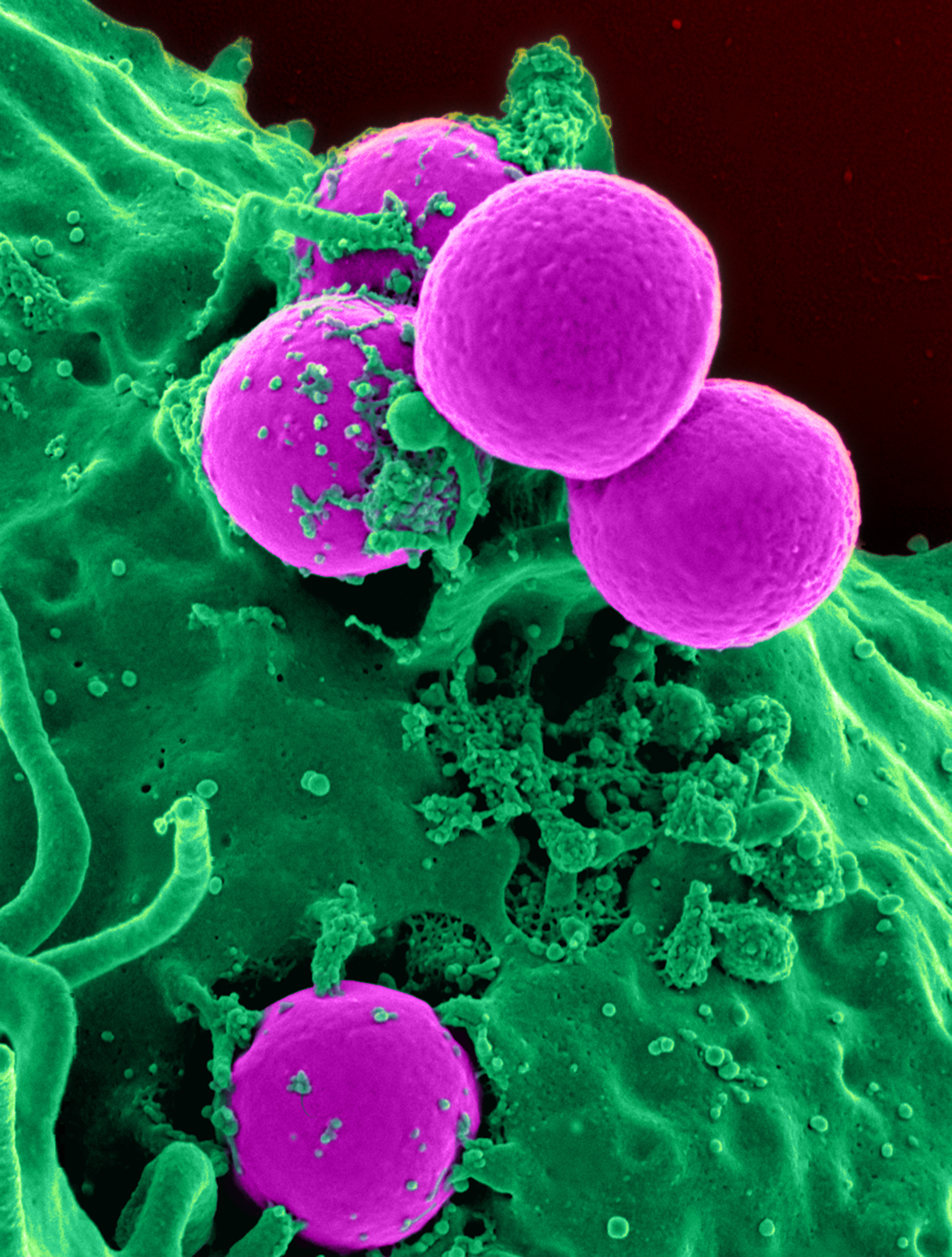|
Isolation Chip
The Isolation chip (or ichip) is a method of culturing bacteria. Using regular methods, 99% of bacterial species are not able to be cultured as they do not grow in conditions made in a laboratory, a problem called the "Great Plate Count Anomaly". The ichip instead cultures bacterial species within its soil environment. The soil is diluted in molten agar and nutrients such that only a single cell, on average, grows in the ichip's small compartments or wells, hence the term "isolation". The chip is then enclosed in a semipermeable plastic membrane and buried back in the dirt to allow in nutrients not available in the lab. With this culturing method, about 50 to 60 percent of bacterial species are able to survive. Notably, the bacterial species ''Eleftheria terrae'', which makes the antibiotic teixobactin that has shown promise against many drug-resistant strains like methicillin-resistant ''Staphylococcus aureus'', was discovered using the ichip in 2015. In addition to antibiotics, it ... [...More Info...] [...Related Items...] OR: [Wikipedia] [Google] [Baidu] |
Eleftheria Terrae
''Eleftheria terrae'' is a recently discovered Gram-negative bacterium. ''E. terrae'' is a temporary name for the organism, as it was only discovered in 2014 and is still undergoing scientific study. It was found to produce a previously unknown antibiotic named teixobactin. The discovery of ''E. terrae'' could represent a new age of antibiotics, as teixobactin is the first new antibiotic discovered since the synthetic era of the 1980s. Prior research has indicated that other uncultivable bacteria like ''E. terrae'' have potential in the development of new antimicrobial agents. Discovery As of 2015, an estimated 99% of bacterial species are uncultured and require advanced means, such as the iChip, to be isolated. ''E. terrae'' is one such bacterium affectionately named by scientists "microbial dark matter" cultivated by emerging scientific methods. A team from Novobiotic Pharmaceuticals led by L. Ling discovered ''Eleftheria terrae'' in the fall of 2014 in a field in Maine usi ... [...More Info...] [...Related Items...] OR: [Wikipedia] [Google] [Baidu] |
Teixobactin
Teixobactin () is a peptide-like secondary metabolite of some species of bacteria, that kills some gram-positive bacteria. It appears to belong to a new class of antibiotics, and harms bacteria by binding to lipid II and lipid III, important precursor molecules for forming the cell wall. Teixobactin was discovered using a new method of culturing bacteria in soil, which allowed researchers to grow a previously unculturable bacterium now named ''Eleftheria terrae'', which produces the antibiotic. Teixobactin was shown to kill ''Staphylococcus aureus'' and ''Mycobacterium tuberculosis''. History In January 2015, a collaboration of four institutes in the US and Germany together with two pharmaceutical companies, reported that they had isolated and characterized a new antibiotic, killing "without detectable resistance." Teixobactin was discovered by screening previously unculturable bacteria present in a sample of soil from "a grassy field in Maine," using the isolation chip (iChi ... [...More Info...] [...Related Items...] OR: [Wikipedia] [Google] [Baidu] |
Methicillin-resistant Staphylococcus Aureus
Methicillin-resistant ''Staphylococcus aureus'' (MRSA) is a group of Gram-positive bacteria that are genetically distinct from other strains of ''Staphylococcus aureus''. MRSA is responsible for several difficult-to-treat infections in humans. It caused more than 100,000 deaths attributable to antimicrobial resistance in 2019. MRSA is any strain of ''S. aureus'' that has developed (through natural selection) or acquired (through horizontal gene transfer) a multiple drug resistance to beta-lactam antibiotics. Beta-lactam (β-lactam) antibiotics are a broad-spectrum group that include some penams (penicillin derivatives such as methicillin and oxacillin) and cephems such as the cephalosporins. Strains unable to resist these antibiotics are classified as methicillin-susceptible ''S. aureus'', or MSSA. MRSA is common in hospitals, prisons, and nursing homes, where people with open wounds, invasive devices such as catheters, and weakened immune systems are at greater risk of healt ... [...More Info...] [...Related Items...] OR: [Wikipedia] [Google] [Baidu] |
NovoBiotic Pharmaceuticals
NovoBiotic Pharmaceuticals is a privately held, early-stage biotechnology company focused on the discovery and development of new drugs from natural sources. Early history and focus The company was founded in 2003 in Cambridge, MA (USA), by Northeastern University professors Kim Lewis and Slava Epstein. Lewis is the director of Northeastern’s Antimicrobial Discovery Center, while Epstein is on the faculty of the Department of Biology. Both Lewis and Epstein are paid consultants to this company. The focus of the company is on the discovery of new antibiotics and oncology drugs. Research and drug development The founders had led the development of new techniques to search for useful molecules produced by the untapped vast majority of soil and marine bacteria that cannot be initially cultured in the laboratory. They developed diffusion chambers ( isolation chips) to be embedded in natural settings to grow "uncultivable" microorganisms ''in situ'', so that they could then be ext ... [...More Info...] [...Related Items...] OR: [Wikipedia] [Google] [Baidu] |
